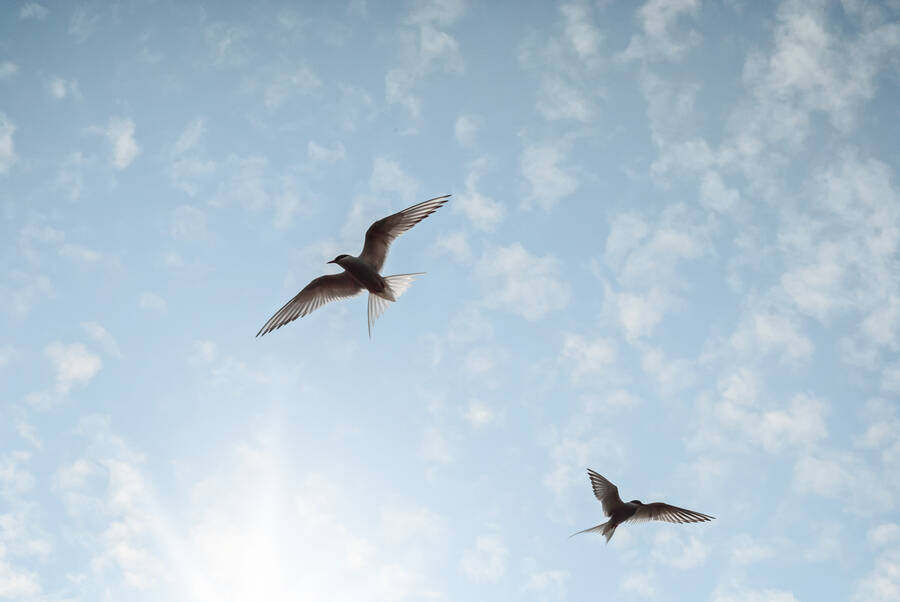Palestinian Painter

Mosab Abu Toha’s poem “Palestinian Painter” begins up high and with birds, but not with the supposed certainty of a bird’s-eye view. Instead, it opens with uncertainty: The birds are “singing a song, perhaps”—though the lines that follow reveal that “perhaps” refers not to the song itself, but to its intended recipient: “perhaps / for the artist working / in what used to be / a well-kept old garden.” Yet if the enjambment might at first appear to resolve the meaning, closer attention only unsettles it again. Is the song for the artist in the sense of address or for him in the sense of dedication? This is the very question that confronts the painter as he paints “a new house, even a new garden. / Without shrapnel, / without twisted metal beams, / without broken bricks and loose electrical wires,” the iterated “without” conjuring in language what the image excludes and, perhaps, registering its encroachment. For whom is the image of destruction held at bay? For those subjected to the violence in life, or for those who insist on averting their gaze? The poem’s final lines invoke “visitors from abroad” whose presence might encourage absenting the haunting elements from the image. The assertion of their position turns me to my own. After all, who am I but a visitor from abroad, changing the meaning with my fraught looking?
– Claire Schwartz
Listen to Mosab Abu Toha read "Palestinian Painter."
Palestinian Painter
Two birds leave their nest, singing a song, perhaps for the artist working in what used to be a well-kept old garden. He’s painting a new house, even a new garden. Without shrapnel, without twisted metal beams, without broken bricks and loose electrical wires. But then I see him hesitate, looking at a headless doll lying in the rubble. I’m wondering if he’ll paint it as part of the new house and the resurrected garden. It might destroy its harmony. It might disturb visitors from abroad.
Mosab Abu Toha is a Palestinian poet and librarian who was born in Gaza and has spent his life there. His debut book of poems, Thing You May Find Hidden in My Ear, is forthcoming from City Lights Books.
